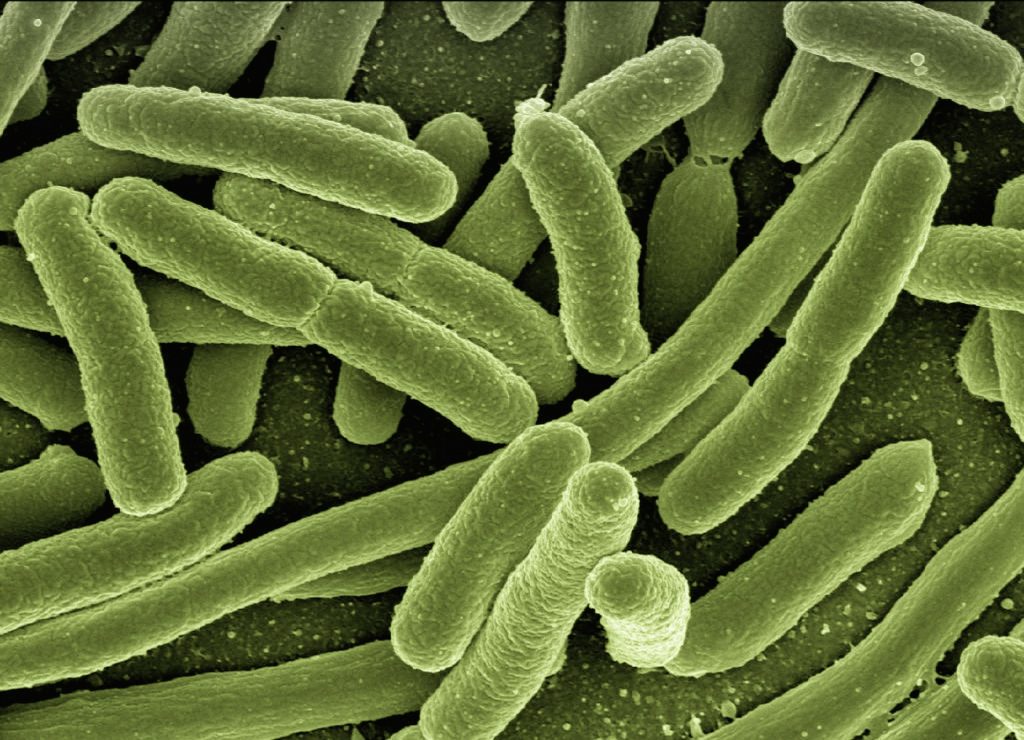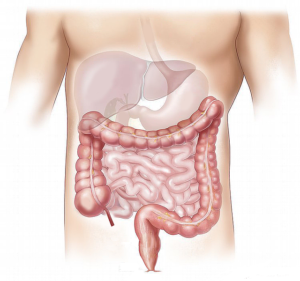Gut Flora and Mental Health

While naturopathic medicine has long focused on the importance of the gastrointestinal system in maintaining and restoring health, some of the latest medical research is starting to strongly support the connection as well. The gut flora—the total bacterial, fungal and viral organisms living within our gastrointestinal tract—appear to affect us in profound ways. And one of the ways the gut flora affects our wellbeing is through effects on mental health.
At first glance, it may seem strange that microorganisms living in our gastrointestinal tract would affect our brain. Yet evidence continues to grow linking the two. One study of patients seeking treatment at an anxiety clinic found elevated symptoms of irritable bowel syndrome in patients with panic attacks, generalized anxiety disorder and major depression. Higher gastrointestinal symptoms also correlated with higher anxiety sensitivity, health anxiety and greater interference of their health problems in daily life (Gros 2009).
Even more intriguing, a study found that a previous gastrointestinal infection increased the risk for future anxiety problems (Bruch 2016). In other words, gastrointestinal infections may lay the groundwork for future mental illness. And yet the relationship appears to be bidirectional, as a similar study found that patients with an anxiety disorder or post-traumatic stress disorder were more likely to develop gastrointestinal problems in the future (El-Gabalawy 2014).
The Composition and Function of the Microbiome
The gut flora or “microbiome” is estimated to contain between 10 and 100 trillion microorganisms (Thursby 2017). Of the bacteria present, a recent study found 1,235 different species that can reside within the gastrointestinal tract of humans. Yet each individual person was found to have around 135-237 different bacterial species present in their own gut flora (Yang 2020).
While different people have different bacteria, the function of the bacterial flora is typically preserved. Different bacteria often provide the same functions needed within the digestive tract for digestion and for maintaining overall health (Morgan 2013).
How the Gut Flora Influences the Brain
Recently, research has identified a gut-brain axis, a two way street of communication between the brain and the bacteria that live in the gastrointestinal tract. This communication pathway includes hormonal pathways through the “hypothalamic-pituitary-adrenal axis” which coordinates the stress response, and neural connections between the brain and gastrointestinal nervous systems (Carabotti 2015).
Early Life Influences on Gut Flora and Mental Health
The effects of the gut flora on brain development have been explored in animal models. Some preterm infants have problems with poor brain development. In a study, the gut flora of preterm human infants with poor development was transferred into newborn mice. As the mice developed, they had poor brain development and signs of brain inflammation similar to the preterm human infants. Newborn mice in the control group, colonized with gut flora from healthy preterm human infants, developed normally (Lu 2018). The results strongly suggest that gut flora in infancy has a profound effect on brain development.
Overall, animal research shows that diet, medications and stress all affect the gut flora before and after birth. These changes predispose animals to mental health disorders later in life, including symptoms similar to depression, anxiety, schizophrenia and autism (Codagnone 2019). For example, pregnant mice were given an non-absorbed antibiotic to reduce the normal gut flora during pregnancy. After the pups were born and grew, they displayed significant levels of anxiety along with behaviors suggestive of schizophrenia—all just from a reduction in the normal gut flora of their mothers during pregnancy due to antibiotic exposure (Codagnone 2019).
Later in Life
While evidence strongly shows influences on mental health from early life changes, evidence also shows changes in gut flora in adults with mental illness. Individuals with major depression, generalized anxiety disorder, bipolar and schizophrenia present with gut flora abnormalities and increased intestinal permeability or “leaky gut (Peirce 2019).”
Interestingly, these changes cause increasing inflammation throughout the body. And like gut flora changes, increased inflammation is also correlated with mental illness (Miller 2015). Further compounding the problem, gut flora changes appear to increase the stress response which can further increase inflammation and contribute to poor mental health.
Evidence also suggests that stress causes negative changes to the gut flora. Different types of stress in animal studies, from maternal separation, social stress, restraint, crowding, heat and noise, have all been shown to alter the composition of the gut flora (Rea 2016). Once again, we find that the relationship between the brain and gut is bidirectional: changes in the gut flora can increase stress and stress can cause changes in the gut flora.
Interventions
In situations where gut flora is causing or contributing to mental health problems, it can be worth considering approaches to address gut flora disturbances. Interventions to change or improve the gut flora can include:
- Diet
- Probiotics
- Prebiotics and fiber
- Stress reduction
- Antimicrobials
Diet

Dietary changes can rapidly alter the gut flora. Switching to a more plant-based or animal-based diet quickly shifts the different types of bacteria present within the gastrointestinal tract (David 2014).
Some of the simplest advice to improve the gut flora is to eliminate or significantly reduce processed foods while increasing fruits and vegetables. Processed foods, like bread, chips, yogurt, candy, crackers, cereal and frozen dinners, increase gut flora linked with inflammation (Zinocker 2018). Considering that processed foods can contribute up to 80% of the calories consumed in the United States (Martini 2021), reducing processed foods could have profound effects on improving gut flora.
And studies show that processed foods contribute to mental illness. Higher processed food consumption correlates with higher rates of depression (Pagliai 2021). Whereas studies on healthier eating patterns that include healthy fats with plenty of fruits and vegetables show decreased risks (Ljungberg 2020).
Probiotics
Beneficial bacteria supplemented as probiotics can reduce inflammation and help improve the gut flora (Kim 2019). However, research shows that different probiotics can have different effects and benefits.
An overall analysis of the published research on probiotics for mental health found that probiotics had small but significant beneficial effects on depression and anxiety symptoms (Liu 2019). It’s likely as the research continues that specific species and strains of bacteria may be discovered that provide larger improvements in mental health symptoms.
Prebiotics and Fiber
Prebiotics are different types of fiber that specifically feed beneficial gut flora throughout the digestive tract. Studies on prebiotics and fiber show that they generally reduce inflammation and help reverse leaky gut, both typically present in patients with mental illness (Swann 2020). While observational studies suggest benefits with prebiotic supplementation for mental health, the data so far is not robust and clinical trials are still quite mixed (Liu 2019).
It’s also likely that different fiber sources may have different effects, complicating the issue. A recent study out of Korea outlines this possibility. In the study, they found that seaweed and mushroom fiber intake were inversely correlated with depression while other fiber types from grains, fruits and vegetables were not (Kim 2020). It’s also possible that there could easily be individual differences and responses to fiber. Similar to different probiotics, different prebiotics and fiber types may yield individualized benefits based on an individual’s current microbiome.
Stress Reduction
As mentioned previously, stress disrupts normal gut flora and disrupted gut flora increases the stress response. Breaking this stress cycle can be helpful in transitioning back towards a more healthy gut flora. Aerobic exercise, resistance training, yoga, tai chi and meditation have all been shown to lower anxiety levels effectively (Stubbs 2017, Saeed 2019, Zhang 2019). Incorporating some form of stress reduction behavior is often critical for improving or maintaining gut flora, especially considering our modern, high-stress lifestyles.
Antimicrobials
While a full discussion of antimicrobials in the treatment of gut flora problems is beyond the scope of this article, it is worth mentioning that in certain cases, some form of antimicrobial therapy may be necessary to change or eliminate gut flora problems. Interventions can include standard antibiotics or herbal antimicrobial therapies to help clear pathogenic gut flora. In the case of antibiotics, there is always a risk of further gut flora disruption, as antibiotics target both pathological and healthy gut flora organisms.
Generally, herbal antimicrobials, like garlic, berberine, neem and many others, don’t carry the same level of risk for causing gut flora disturbances, but still aren’t completely without risk. Dosing of natural antimicrobials can get complicated as can symptoms experienced during treatment. In cases where antimicrobials are indicated to help change or improve gut flora, working with a well-trained practitioner familiar with their use is key.
Conclusion
The gut flora and the brain have a bidirectional relationship with each one influencing the other. By understanding the nature of the gut-brain-axis, it’s possible to use different tools and techniques to improve mental health through manipulation of the gut flora and to improve the gut flora through techniques and strategies that influence mental health. As our understanding of the relationship grows, it is likely we will continue to acquire even more powerful tools and techniques for improving the relationship between the two. Overall, this will hopefully improve our ability to treat mental health conditions.



